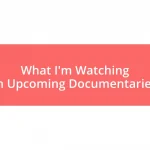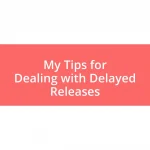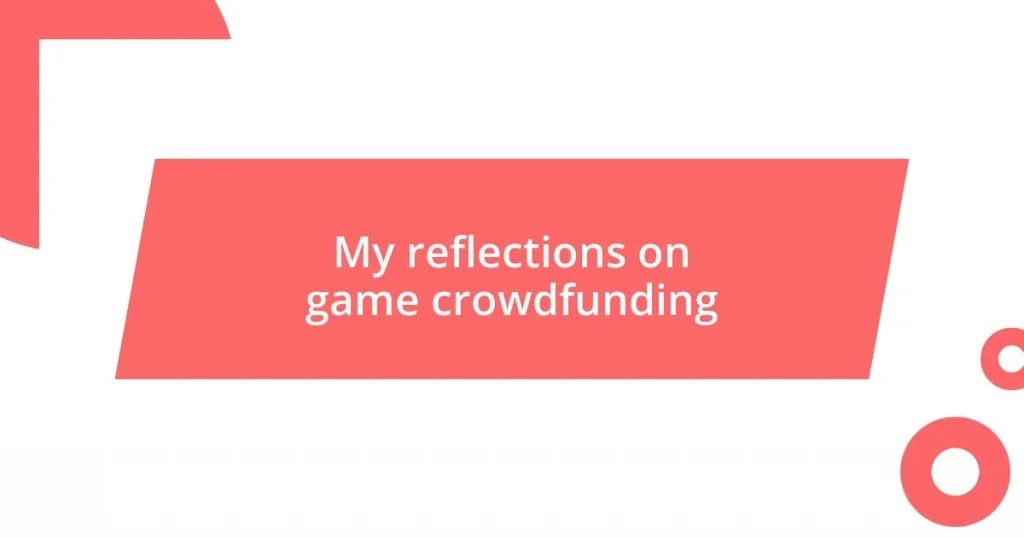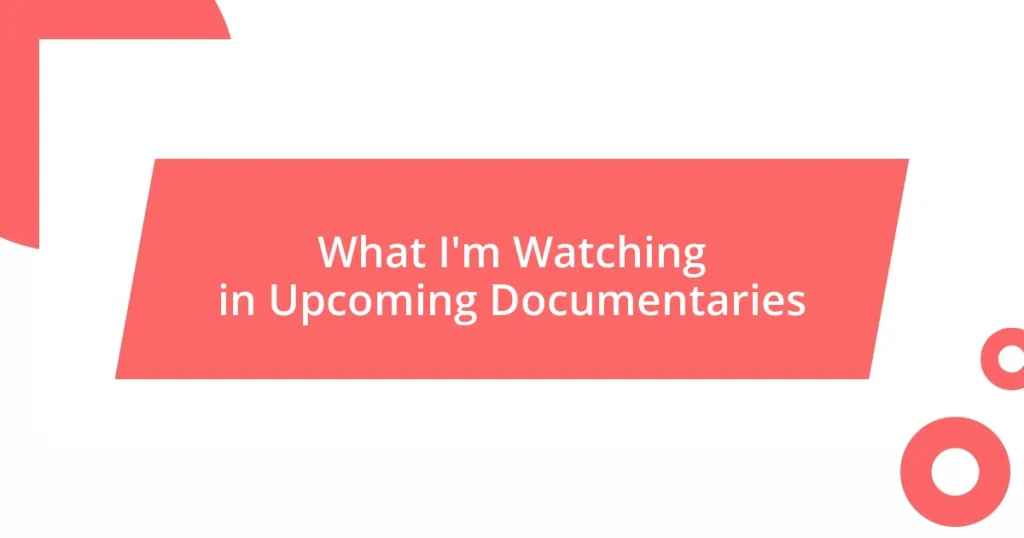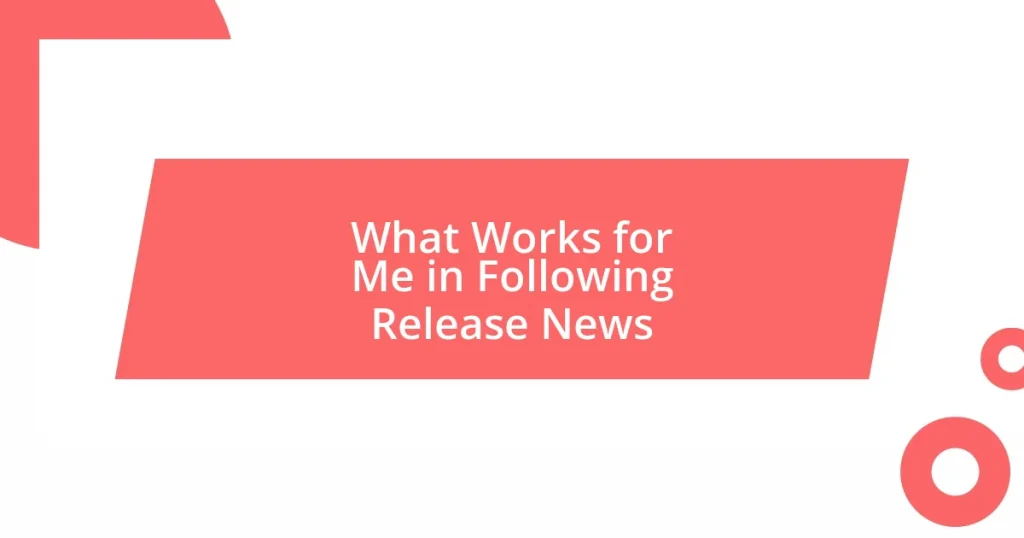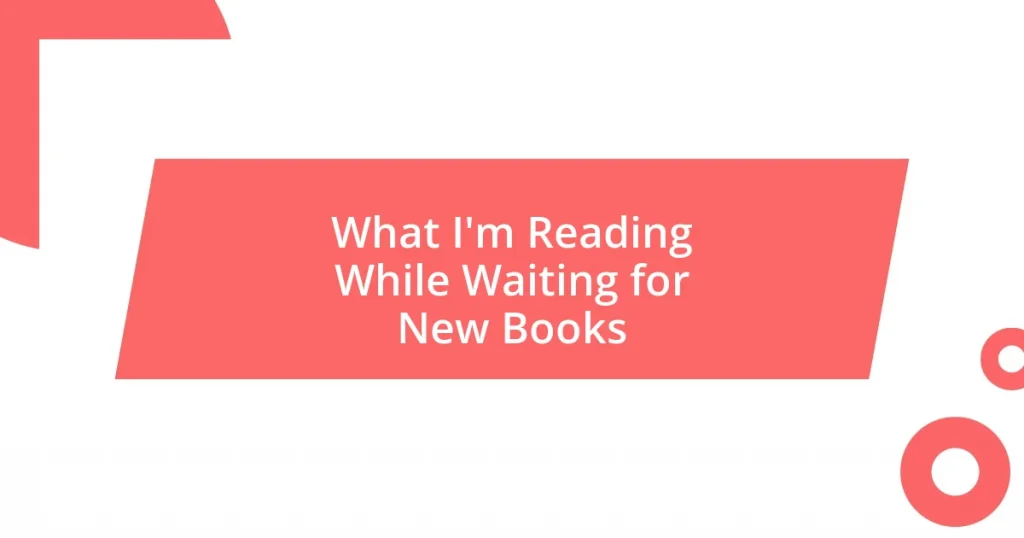Key takeaways:
- Successful game crowdfunding relies on clear communication, engagement, and transparency between creators and backers.
- Key platforms like Kickstarter, Indiegogo, and Gamefound offer diverse features that cater to different creators and communities.
- Evaluating campaign success encompasses financial results, backer satisfaction, and ongoing post-launch engagement with supporters.
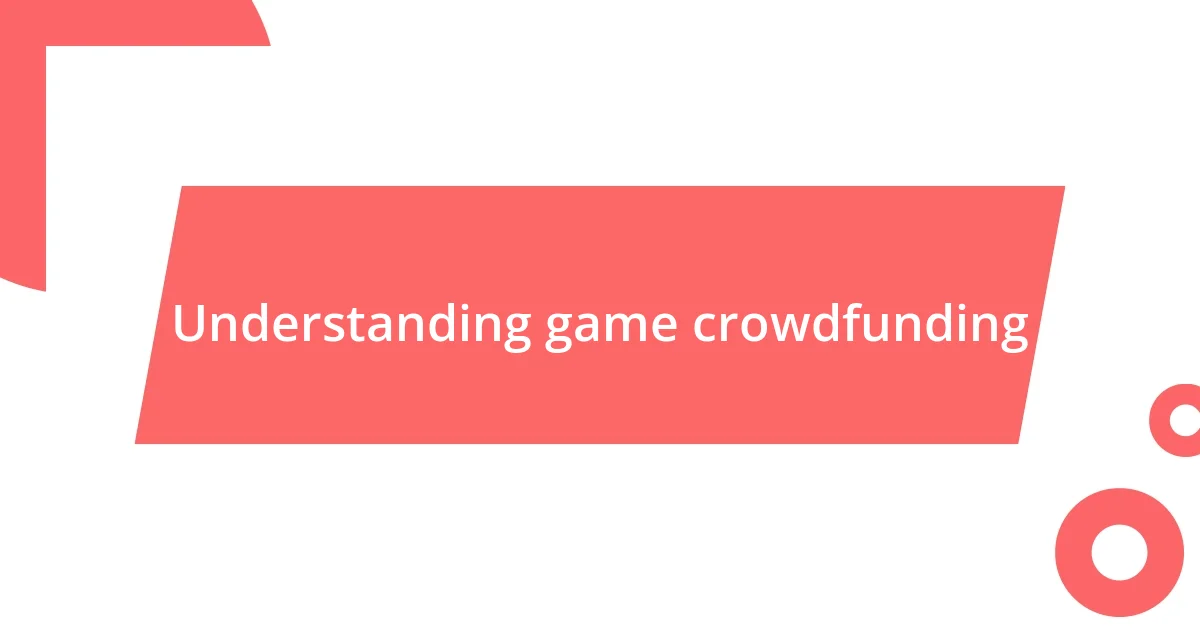
Understanding game crowdfunding
Game crowdfunding is an exciting avenue that empowers both creators and backers to bring innovative projects to life. I remember the thrill of supporting a game that I’d been eagerly anticipating; it felt like I was part of something bigger, a community coming together to help realize a shared dream. Isn’t it fascinating how a simple pledge can spark a world of creativity and collaboration?
Understanding this process goes beyond just financial support; it’s about belief in an idea. When I first backed a game, I felt that rush of hope and anticipation for the final product. But here’s a thought—what if the project doesn’t meet expectations? Navigating the delicate balance of trust can be daunting, but it’s integral to the crowdfunding experience.
As I delved deeper into various funded projects, I found that transparency and communication are crucial elements for success. I recall a developer who kept backers updated with insightful videos and progress reports, which made me feel valued and connected to the journey. If you’ve ever supported a project, how did that communication shape your experience? These connections can redefine what it means to be a backer and influence the fate of the game.
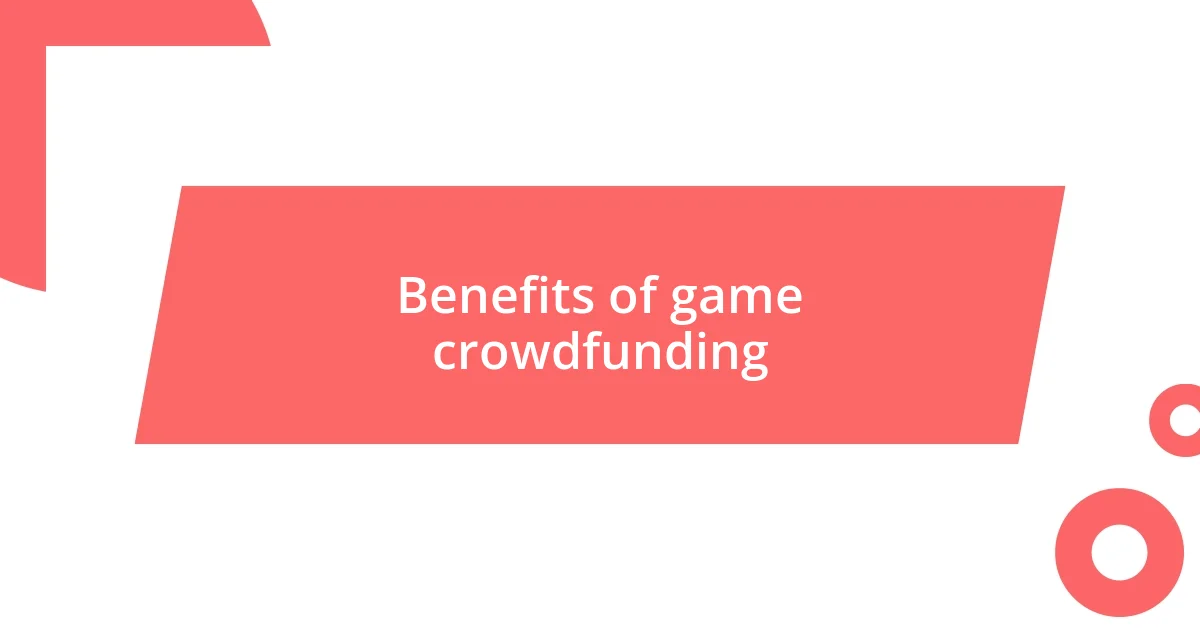
Benefits of game crowdfunding
Crowdfunding in gaming creates an incredible platform for creators to gain financial backing while fostering community interaction. I recall a specific instance where I pledged to a game that showcased an innovative concept. Watching it evolve through updates felt like I was nurturing a seed into a flourishing tree. This unique engagement allowed me to see my investment blossom in real-time, strengthening my connection to the creators.
One of my favorite benefits of game crowdfunding is its ability to validate concepts before they hit the market. When I supported a project that later gained traction, it was exhilarating to witness the idea transform into a tangible product, confirming that the community believed in it too. It’s almost like being part of a secret club, knowing I contributed to something with potential.
Additionally, crowdfunding can often lead to exclusive rewards for backers, enhancing the overall experience. I remember receiving a limited-edition soundtrack and special in-game items from a project I backed. These rewards sparked joy and a sense of ownership, reminding me that my support truly mattered and contributed to the game’s success.
| Benefit | Personal Experience |
|---|---|
| Engagement with creators | Felt personally connected to the development through updates. |
| Validation of ideas | Excited to see an idea I supported materialize into reality. |
| Exclusive rewards | Received limited edition items that enhanced my gaming experience. |
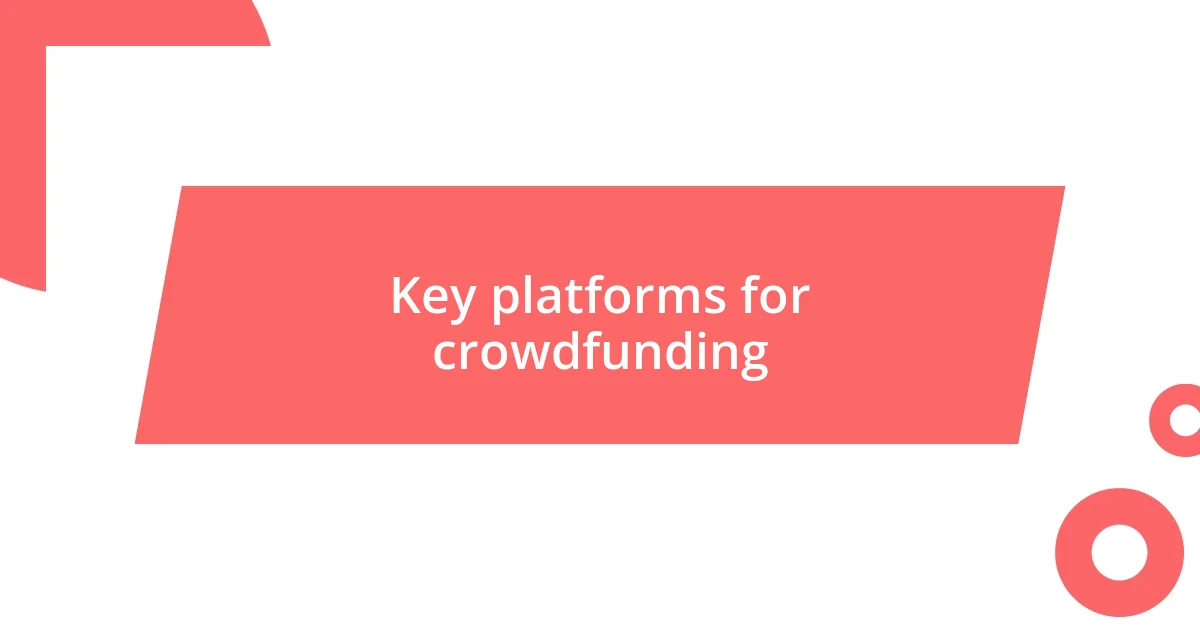
Key platforms for crowdfunding
Finding the right platform for game crowdfunding can significantly impact a project’s success. I’ve explored various sites, and each offers unique features that cater to different types of creators and backers alike. For instance, some platforms have built-in communities that make connecting with fellow enthusiasts a breeze.
Here’s a list of key platforms I’ve come across:
- Kickstarter: This is perhaps the most well-known platform for crowdfunding. It thrives on creative projects, attracting numerous game developers looking to share their visions.
- Indiegogo: Known for its flexibility, Indiegogo allows for both fixed and flexible funding options, which can be a lifesaver for projects with fluctuating financial needs.
- Gamefound: Specifically tailored for board games, Gamefound focuses on providing a platform that’s not just for funding but also for fulfilling rewards, which I find incredibly appealing.
- Patreon: While more of a subscription-based model, Patreon enables creators to build a steady stream of income. It’s perfect for ongoing projects that need consistent support over time.
- Fig: This platform stands out with its hybrid approach to crowdfunding and investment, allowing backers to potentially share in a project’s success.
As I navigated these platforms, it struck me how each community has its distinct vibe. I felt a sense of belonging when I found a small board game project on Gamefound, where the creators actively responded to comments and updates, fostering an inviting atmosphere.
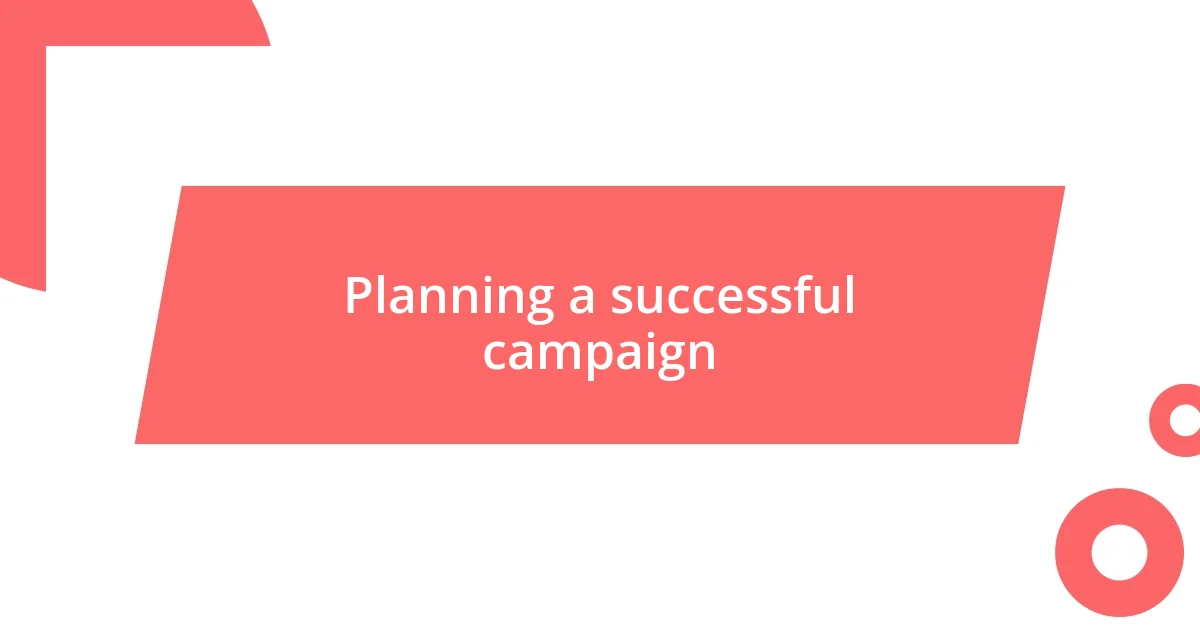
Planning a successful campaign
Planning a successful crowdfunding campaign involves clear communication and strategic goal-setting. I remember launching a campaign where I meticulously laid out my project timeline, budget, and ultimate vision. This clarity not only kept my backers informed but also built their trust because they could see exactly where their contributions were going.
It’s also essential to engage your community early. In one of my experiences, I gathered feedback from potential backers on campaign details before the launch. Their input made a noticeable difference in my approach, transforming a passive audience into active participants who felt invested right from the start. Have you ever considered how a little interaction can pave the way for a more robust support network?
Finally, showcasing your project with compelling visuals can significantly enhance its perceived value. During a campaign I backed, the creators shared a series of behind-the-scenes videos showing the concept artwork and gameplay mechanics. Watching their passion shine through those videos hooked me instantly, and I felt compelled to support their vision. Isn’t it fascinating how a well-crafted introduction can ignite enthusiasm in potential backers?
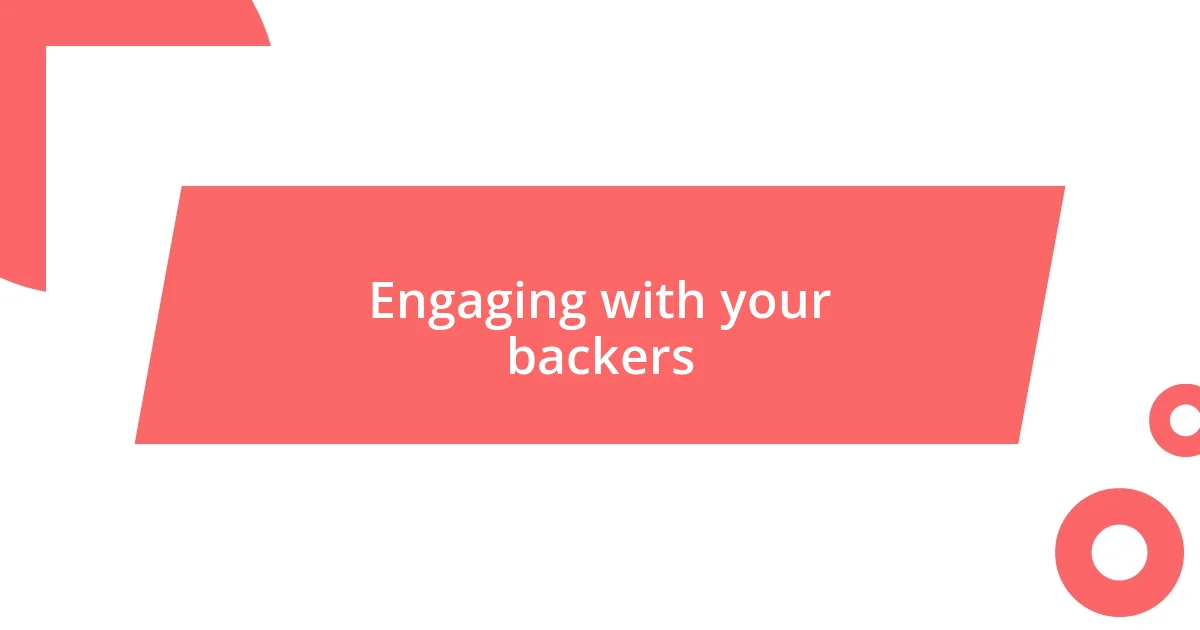
Engaging with your backers
Engaging with your backers is truly a game-changer in the crowdfunding process. I’ve experienced firsthand how personal interaction can transform a campaign. For instance, I remember a project where the creators hosted live Q&A sessions. It felt so rewarding to have my questions answered in real-time; it was as if I was part of their team.
Moreover, regular updates are crucial. I once backed a game that sent out weekly updates about their progress, complete with sneak peeks of new characters. This not only kept me excited but also made me feel valued as a backer. Have you ever thought about how these little touches can create a strong bond with your supporters?
In my journey, I’ve also learned the power of gratitude. When the creators of a game I funded sent personalized thank-you messages to backers, it left a lasting impression on me. It’s that acknowledgment that fosters a sense of community and loyalty. Isn’t it amazing how a simple “thank you” can turn a passive supporter into a lifelong fan?
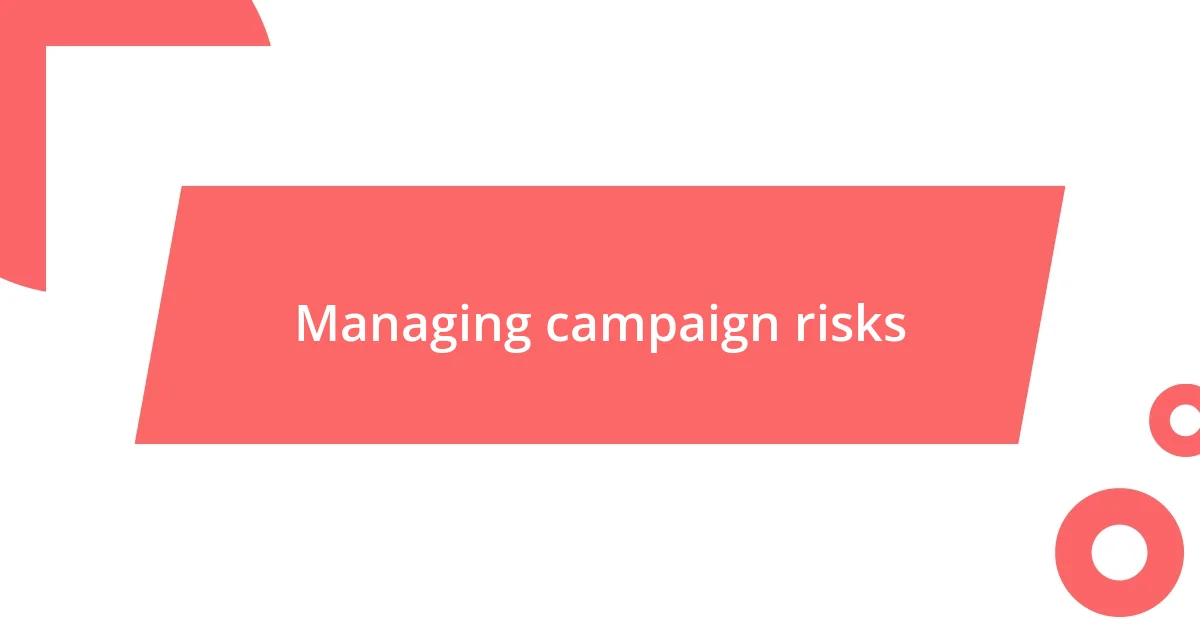
Managing campaign risks
Managing campaign risks is a crucial part of the crowdfunding journey. I once contributed to a campaign that seemed solid but later revealed its management struggles. The creators had overpromised on their stretch goals without understanding the financial implications. It’s moments like these that reinforce the importance of realistic goal-setting. Have you ever invested in a project only to witness its downfall due to overambitious planning?
Another aspect to consider is transparency. I’ve seen campaigns falter when communication broke down. In one instance, a project I backed went dark for weeks, leaving us all anxious and confused. The creators didn’t provide updates on delays, which led to distrust among backers. It taught me that cultivating a culture of transparency can significantly mitigate risks. If a setback occurs, owning up to it can strengthen your relationship with supporters. Don’t you think it’s better to be open than to leave your community guessing?
Lastly, have contingency plans in place. I once joined a campaign where the creators had a backup plan for sourcing materials if their initial supplier fell through. This foresight not only assured me of their commitment but also made me feel secure about my investment. It’s an invaluable lesson I’ve learned: planning for the unexpected can save your campaign from potential disaster. Wouldn’t you agree that being prepared can make all the difference?
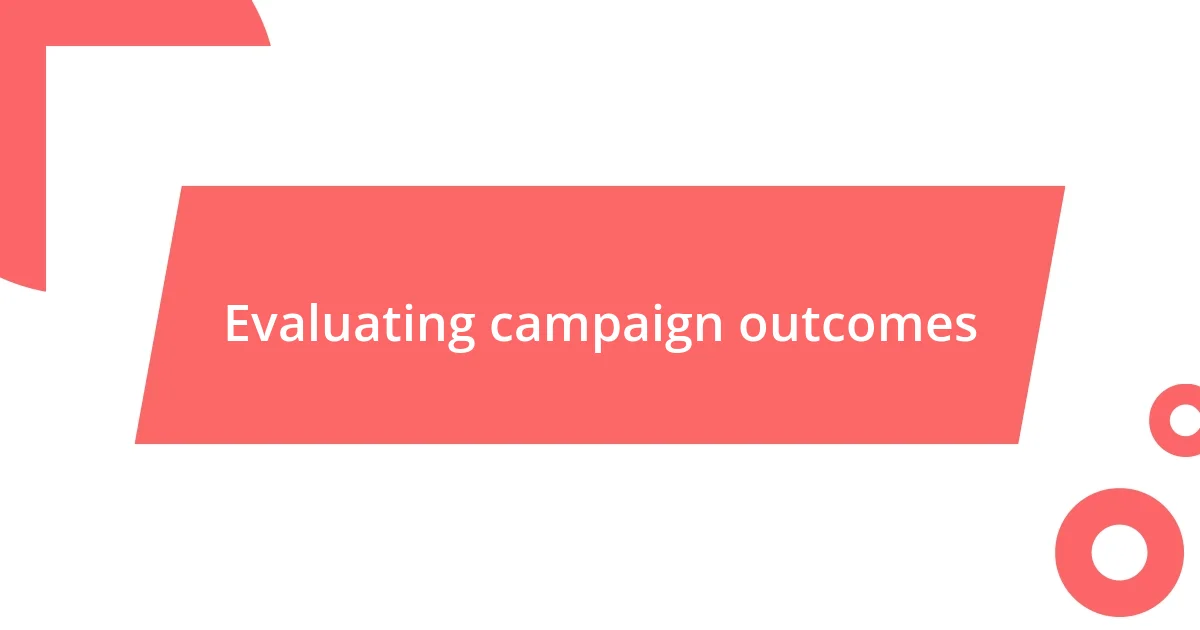
Evaluating campaign outcomes
Evaluating the outcomes of a crowdfunding campaign brings together various vital aspects. After participating in my fair share of campaigns, I’ve realized that defining success goes beyond just financial goals. I recall a project that raised double its initial target but ultimately fell short in delivering the promised game quality. It left me wondering—what does success truly mean? For me, it’s a blend of meeting financial targets and delivering a stellar product.
One crucial factor in assessing a campaign’s success is backer satisfaction. I remember waiting eagerly for a game that had delivered frequent updates and engaged its community warmly. When the final product arrived, it was met with applause from backers—including me! The joy I felt when I unwrapped the beautifully crafted game was palpable. So, shouldn’t the feeling of delight among supporters be a sign of a successful campaign?
Another element I strongly emphasize is the campaign’s post-launch phase. I was part of a crowdfunding initiative that didn’t just stop at delivering the game; they continued to engage us with expansion packs and community events. It’s vital to ask, how many campaigns maintain that connection after the funds have been raised? When creators make an effort to keep their backers in the loop long after the campaign ends, it reflects an enduring value that benefits both parties. It’s an experience that stays with you and reinforces the bond formed during the crowdfunding journey.
